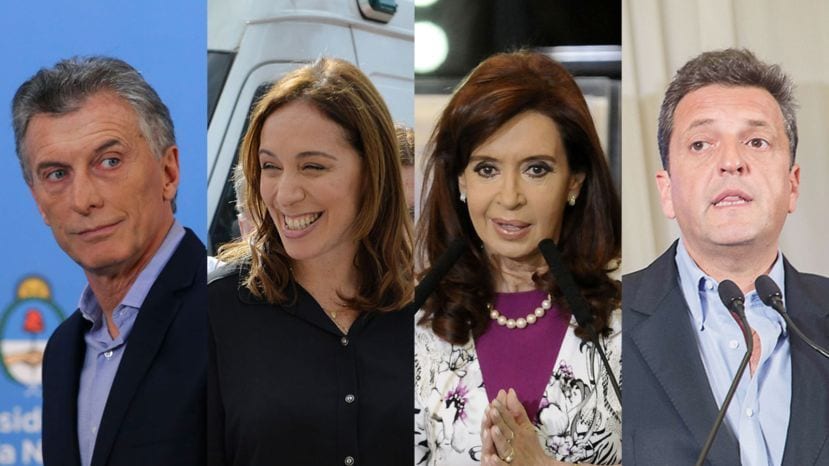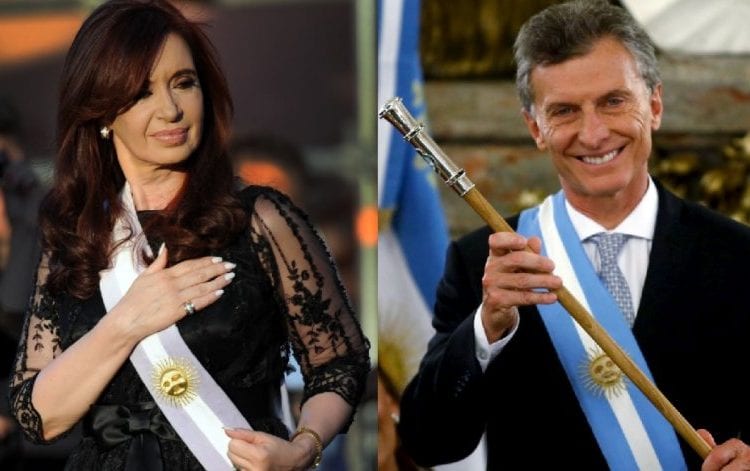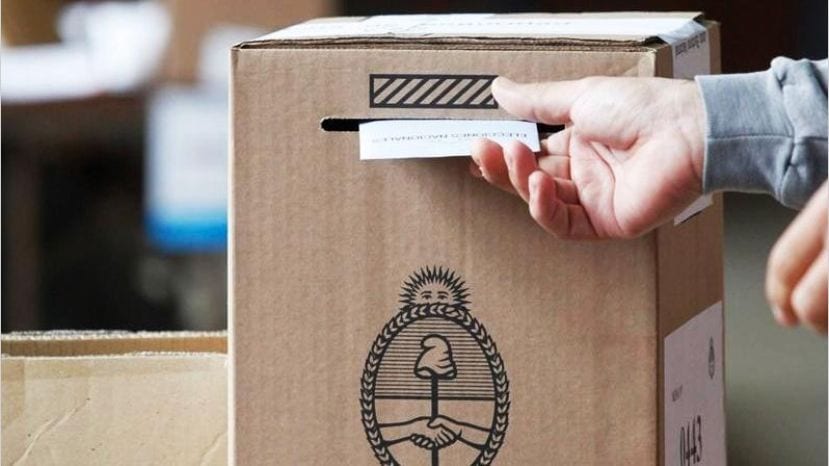Last Sunday was the deadline for the nomination of candidates for the presidency of Argentina. The general elections will be held on October 27, but it is possible to hold a second round if none of the candidates gets more than 45% of the vote (or 40%, but with a difference of more than 10% in relation to second place), then the final round may pass on November 24th. Who are the main contenders for the presidency? Will the current head of state be able to hold their positions?
In October 2019, nine candidates will apply for the presidency of Argentina; nevertheless, residents of this Latin American country believe that the main power competition will be between the current leader Mauricio Macri and former Cabinet Minister Alberto Fernandez (Spanish – Alberto Ángel Fernández), who is nominated for this post “in conjunction” with former President of the country Christina Kirchner (Spanish – Cristina Elisabet Fernández de Kirchner).

In addition to these two candidates for the presidency, who have long stated their intentions to fight for the presidency, the former Minister of Economy Roberto Lavagna, who often criticizes the current Argentine government, Nicolas Del Caño (Spanish – Nicolás del Caño), a young Argentine politician who has already put forward his candidacy in the last election, the only woman candidate Manuela Castañeira (Spanish – Manuela Jimena Castañeira), renowned Latin American economist Jose Luis Espert (Spanish – José Luis Espert), former vice president of the largest state-owned “Banco Nación” Juan Gomez Centurion (Spanish – Juan José Gómez Centurión), will also participate in the presidential elections; other political figures: Alejandro Biondini (Spanish – Alejandro Carlos Biondini), ex-governor and acting senator José Romero Feris (Spanish – José Antonio Romero Feris).
Judging by public opinion polls, most Argentines are confident that the main battle will be between Macri and Fernandez. This is evidenced by data from various studies, all news and analytical reviews in Argentina are devoted to this topic. With each week, the debate between supporters of the current head of state and supporters of the ex-president Kirchner, who intends to become vice president under Fernandez, is becoming fiercer.
August 11 in Argentina will be held “primaries” (inner-party elections). However, this stage will be of a formal nature, since each party has nominated only one candidate for the post of head of state.

As leading political commentators in Latin America suggest, the elections this year are likely to be similar in appearance to the situation of 2015, when Mauricio Macri and the protégé of Kirchner – Daniel Scioli (Spanish – Daniel Osvaldo Scioli) came together in the second round. However, the only difference this year is that this time the Macri bloc has leading positions, not Kirchner. Analyzing the political palette of the electoral process, it is worth noting that in the presidential election this year, forces were presented that correspond to the three central Argentinean political traditions: “Left Peronists”, who again decided to trust in the image of Christina Kirchner; “Right Peronists” – supporters of the “Alternativa Federal” bloc, who for a long time were outside the political arena of Argentina, who appear to be the weakest and most vulnerable of all; and the most confident “Cambiemos” bloc, which nominates incumbent head of state, Mauricio Macri.
Having suffered a total defeat in 2015, the “Cambiemos” bloc bypassed the “kirchneristas” on all fronts: the posts of the president, the capital’s governor and the mayor passed to the supporters of Macri, the “Left Peronists” lost their positions. By the way, some of them immediately after the victory in 2015 of the “Cambiemos” bloc decided to move to the side of the new government. In addition, over the years, Macri and his team have been able to express themselves very effectively by political tactics: balancing between different political blocs and currents, combining this with a series of successful anti-corruption measures that were primarily aimed at Kirchner and her close circle. Relying on social rhetoric, the new government, represented mostly by the party of Macri “PRO” and the influential radical bloc “Unión Civica”, gradually moved back left opponents backstage, with the intention of gaining revenge only in the election year. In addition, the Macri government acted very pragmatically and delegated the right to decide a number of issues to the citizens themselves – through voting or public dialogue. The population very positively accepted this method of collective work with the government, thus in Argentina such complicated topics as legalization of abortion, issues of self-defense, legality, powers of the police and others were discussed.
According to political commentators, the ideological platform of Macri takes a confident position. Despite a number of unsuccessful projects and decisions of the administration, in general, most Argentines are satisfied with the government of moderate conservatives. There are no mass protests like the “anti-Kirchner” marches in their time. An interesting fact is that even trade unions in most cases take the neutral side. In the last elections, the “Cambiemos” bloc relied on liberal-economic, anti-corruption and professional advantages, as well as the introduction of effective management tools for the Macri team. In the upcoming elections, the policy setting is leaning toward a larger national policy and addressing security issues.
By the way, work in the field of security is a success, and the “women’s issue” and the problems of violence against women and minors are constantly on the agenda. According to the report of the Ministry of Security of Argentina over the past three years, as a result of the actions of the current government, the detection rate of crimes involving human trafficking, drug trafficking, sexual violence and illegal employment, has almost doubled. Speaking of foreign partners, it is worth noting that they, in turn, highly appreciated the success of the Macri administration in countering crimes of this nature. In 2018, the US Secretary of State Mike Pompeo (Michael Richard “Mike” Pompeo), in an official statement, commented positively that the current government began to more effectively prosecute perpetrators of human trafficking, increased the legal protection of victims and the slave trade, and increased effectiveness of emergency response teams.
Having failed to fulfill most of the promises of its past election program, the current president nevertheless declares that he will seek more radical reforms after his ruling coalition wins the upcoming elections. This time Macri promises that Argentines should expect reforms in the tax, educational and labor spheres.
According to observers, Macri is predictable in the consistent promotion of his neoliberal program of market reforms. However, his policy of “restructuring” of the Argentine economy also implies large-scale layoffs of civil servants, the abolition of tariffs aimed at protecting the national industry, raising the cost of utilities and reducing costs in the social sphere. Whether Mauricio Macri will be able to retain power in his hands, the upcoming October elections will be shown, which today are also viewed as a kind of referendum on the outcome of Macri being in the presidential chair.


